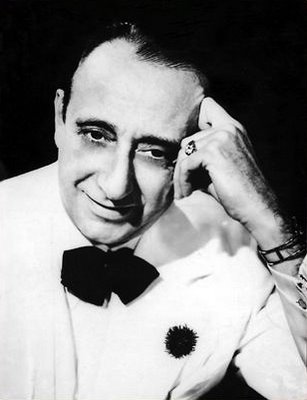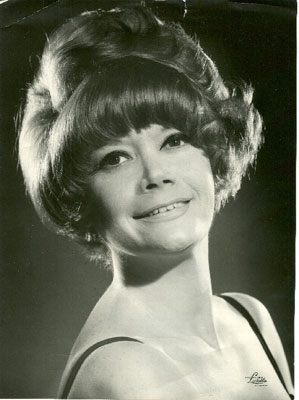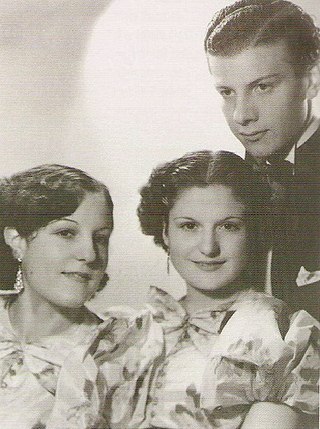
Juan d'Arienzo was an Argentine tango musician, also known as "El Rey del Compás". He was a violinist, band leader, and composer.

Aníbal Carmelo Troilo, also known as Pichuco, was an Argentine tango musician.

Don't Ever Open That Door is a 1952 Argentine thriller film of the classical era directed by Carlos Hugo Christensen and starring Ángel Magana, Roberto Escalada and Norma Giménez. It is a film noir anthology film based on two short stories by Cornell Woolrich, namely "Somebody on the Phone" and "Humming Bird Comes Home".
El Grito sagrado is a 1954 Argentine biographical film of the classical era of Argentine cinema, directed by Luis César Amadori, co-written with Pedro Miguel Obligado, and starring Fanny Navarro, Carlos Cores and Aída Luz.

Mariano Alberto Martínez, known professionally as Mariano Mores, was an Argentine tango composer and pianist.

Antonio Agri was an Argentine violinist, composer and conductor prominent in both the tango and classical music genres.

Argentina competed at the 2011 Pan American Games in Guadalajara, Mexico from October 14 to 30, 2011.
Fernando Egozcue is an Argentinian guitarist and composer.

Leopoldo Federico was an Argentine bandoneon player, arranger, director and composer.
Enrique Kicho Díaz was an Argentine double bass tango musician who played in various ensembles including Aníbal Troilo’s orquesta típica, Astor Piazzolla’s first Quinteto and Conjunto 9 and finally Sexteto Mayor.
Gran Hermano 2015 is the eighth season of the Argentinian version of the reality show Gran Hermano. This season was confirmed in December 2014 by the main executive of the network Liliana Parodi. It was the first season to be broadcast on América TV after being previously in Telefe. The premiere was set for Wednesday 29 April 2015, being delayed one week from its original debut date. This season will come three years after the end of the most recent one. This season finished on 30 September 2015, after 155 days, becoming the second longest season ever produced in the country after the seventh season.

María Eugenia Luna, also known as Jovita Luna, was an Argentine singer and actress.
Gasoleros is an Argentine telenovela issued between 1998 and 1999 by Canal 13. It aired at 9:00 p.m. during prime time, Monday through Friday. It was produced by Pol-ka and the original idea was from Adrián Suar. The musical theme of the introduction is Gasolero from Vicentico.

Guillermina Moragues, better known as Myrna Mores, was an Argentine actress and singer.

Federal Consensus was an electoral coalition in Argentina formed to support the alliance between Roberto Lavagna and Juan Manuel Urtubey in 2019 general election. It is formed by dissidents of the Justicialist Party, the Socialist Party, the Freemen of the South Movement, the Federal Party, the Christian Democratic Party, the Third Position Party and the Light Blue and White Union.









